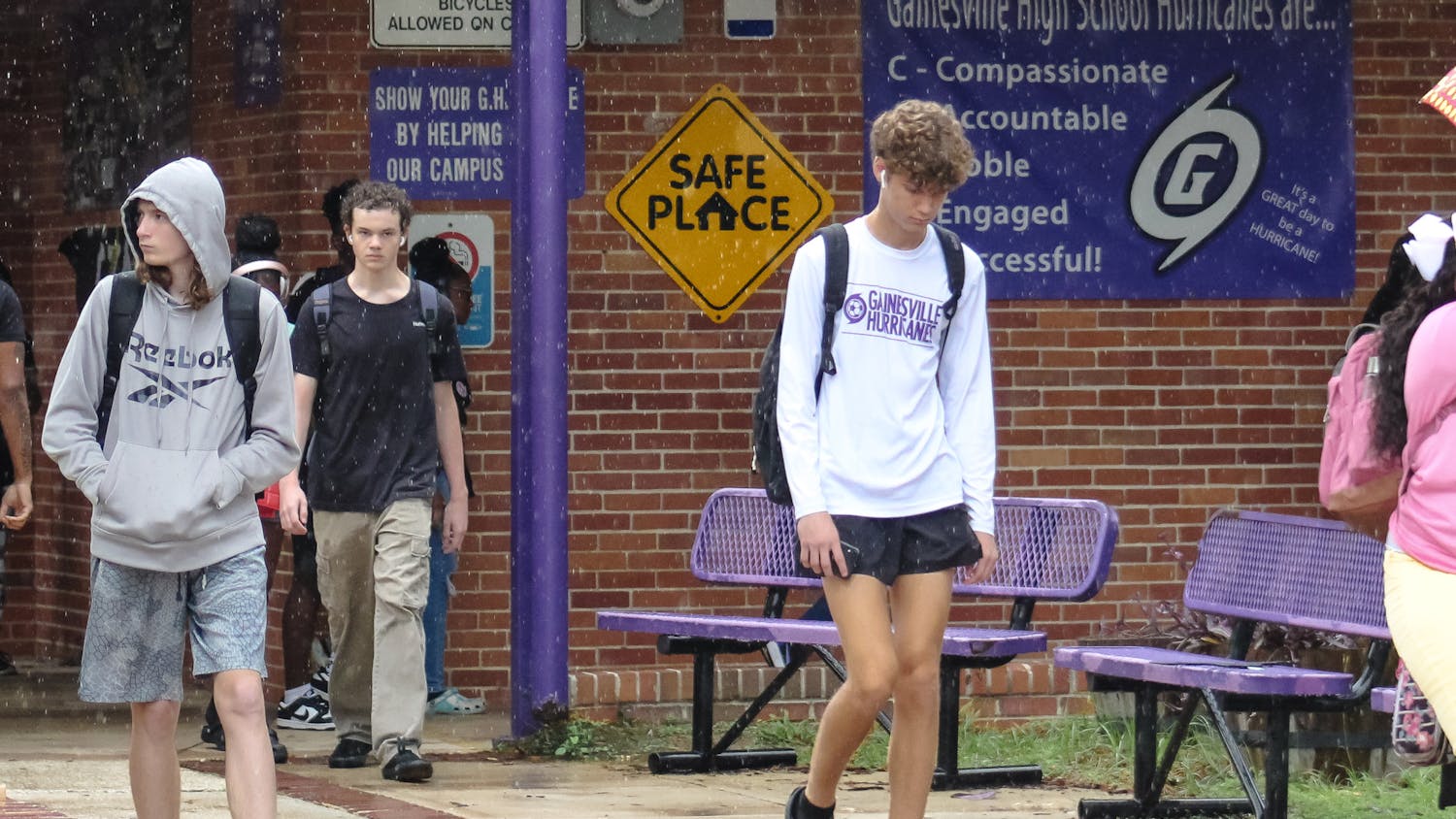I co-organized my first protest the spring of my freshman year, opposing House Bill 1557 or the “Don’t Say Gay” bill. During our march through Gainesville, dozens of community members swelled the crowd while others heckled us with homophobic slurs.
Since then, the Florida Legislature has only further restricted LGBTQ+ rights, expanding “Don’t Say Gay” to grades four through 12, severely limiting access to gender-affirming care, enacting a transgender bathroom ban and preventing transgender people from changing their gender on their driver’s license. Each moment of repression has met resistance from the LGBTQ+ community, especially at UF, which has often found itself in the center of state-waged culture wars.
Queer activists, however, receive unique vitriol when speaking up. “Fa—t” is a classic insult thrown out at protests, but the harassment sometimes crosses a line into physical attacks when hecklers throw drinks or jump at protesters. In one chilling instance, a Gov. Ron DeSantis aide tweeted “new tourism ad?” over an image of a queer protester in Gainesville holding the sign “Ron DeSantis killed me.”
Whether the demonstration concerned reproductive rights, climate justice, academic freedom, living wages or police brutality, I have always seen queer student activists at the forefront. In this position, however, we also face the brunt of the backlash.
Last month, after police arrested nine pro-Palestine protesters, their mugshots quickly spread through online right-wing circles. Hundreds of tweets attacked them for their visible queerness, mocked their appearance, spread their personal information and shared deadnames. The contempt shown for the nine arrested protesters, particularly aimed at the queer protesters, showcases the distinct risk that we take when we organize for human dignity.
Pride Month commemorates the 1969 Stonewall uprising, when the queer community in Greenwich Village violently demonstrated against police brutality and state persecution. Decades later, the queer and trans activists that spearheaded the uprising failed to receive the appreciation they earned. Silvia Rivera’s 1978 “Y’all Better Quiet Down” speech criticized the LGBTQ+ celebrations that left her behind. Celebrated as a central figure of the uprising, it is easy to forget that Marsha P. Johnson’s body was found in the Hudson River in 1992, and her case remains unsolved.
If we, as a queer community, want to celebrate the advancements we have achieved in the last few decades, we must rally around the queer activists that have and continue to push the boundaries. In a renewed era of anti-LGBTQ+ sentiment in Florida, the queer activists who continue to risk it all provide hope for everyone.
Rey Arcenas is a UF history and women’s studies senior.






